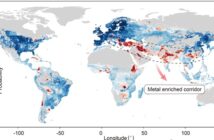Scientists of the Siberian Federal University and Krasnoyarsk scientific centre (KSC) of SB RAS have been working to develop a ‘smart fertiliser’ by combining a traditional fertiliser with a biodegradable polymer, which slowed down the process of decomposition and released nutrient into soil. The results of the study have been published in the Journal of Agricultural and Food Chemistry.
According to the head of the works, Tatiana Volova (Professor of Siberian Federal University and the Head of Laboratory in the Institute of Biophysics KSC of SB RAS), the development of a new generation of drugs through the use of bio-decomposable materials that decompose under the influence of the microflora to innocuous products and provide a gradual release of the active principle into the soil, is the newest area of research in the field of agriculture.
Nitrogen is one of the elements of the smart fertilizer but is often lacked for the growth and development of plants. Plant-available nitrogen in the soil is usually small. Moreover, its compounds are chemically very mobile and easily leached from the soil. In this connection, there is the task of developing such forms of nitrogen fertilizers that provide slow release nitrogen and the constancy of its concentration in the soil.
To create a slowly decaying structures, the researchers used a biodegradable polymer called poly-3-hydroxybutyrate. Scientists mixed powder of the biopolymer with wood flour and ammonium nitrate. The resulting mass was pressed into tablets and used in the experiments with wheat. Disintegration of biodegradable tablets with the addition of ammonium nitrate.
Several options for fertilizing plants were tested. Wheat was grown without fertilisers, with the addition of pure ammonium nitrate, with the application of pressed pellets or tablets, optionally coated with a film layer of biopolymer. The best results were achieved when fertilising packed in double protection, when the core of the tablet, including fertilizer and poly-3-hydroxybutyrate (and in some cases wood flour) covered with a polymer film. In this case, due to slow decomposition of the film and the tablet fertilizer was supplied to the soil with the relatively stable rate within two months.




